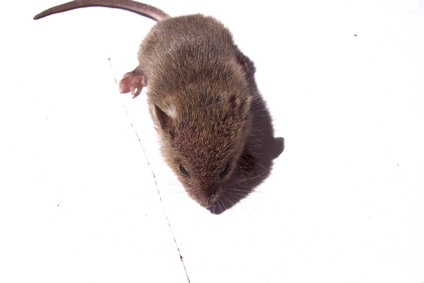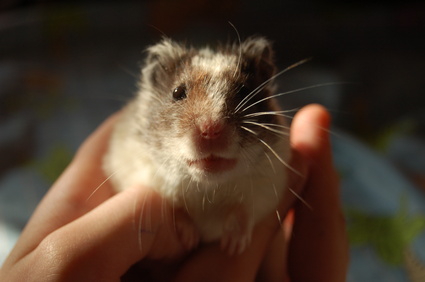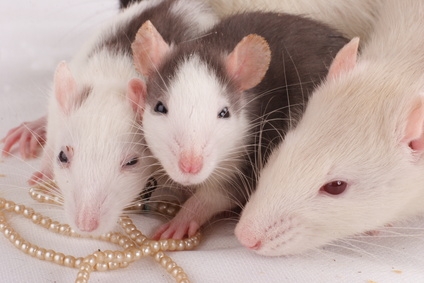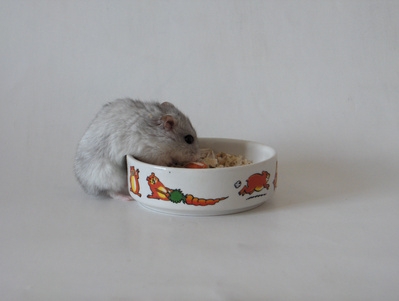
Rats and mice are a constant problem on farms and in aviaries. In these situations there is always plenty of feed around in the form of grain and seeds. Yet most rat and mouse baits use a grain base. Why would a self respecting rodent eat a poisoned grain when there is plenty of attractive clean untainted grain and seeds available on a farm or aviary? They don’t! That’s why farmers complain of a poor response from many commercial rat baits.
The secret to eradicating rats and mice from farms and aviaries is to use a unique bait which tastes nicer to rats and mice than grain or seeds. That’s where Rat Blitz comes in. It was designed to be used on farms and was developed on a poultry farm by a farmer. When Rat Blitz is the bait of choice rodents will eat it first. It’s their first choice and their last. Once started they’ll keep eating the bait, provided the simple steps described below are followed. Because it is a non violent bait taking at least 5 days before death occurs, other rats are not warned, as they are with instant kill baits, so the whole nest will continue eating until they are ALL wiped out.
To achieve real success follow a few simple steps. Make sure all spilled feed is swept up. All silos and storage areas are properly sealed. Get rid of as much rubbish as you can, mow around sheds and animal houses. Have a blitz on possible nesting sites. Don’t leave bags, paper, boxes and other materials in dark corners or cavities and make sure roof spaces are clean. The less food and water lying around the less the rodents will be attracted. Where pot holes are filled with water fill them with gravel, make sure there are no dripping taps as water attracts rodents.
Before you lay any bait make sure you know where rats and mice are congregating. Usually a trail of droppings is a good indication but if you find it difficult to determine put some flour or limestone near some of the droppings and next morning let them show you by following their tracks. Once you are sure of their route then the baiting with Rat Blitz can start.
One of the first mistakes made is to put the bait out in big dollops. That’s a major error because rats and mice in their own community are fussy animals. They will not eat bait on which previous rats and mice have urinated or defecated. Who would!! If the rat bait is in big dollops it’s a certain bet that it will soon be tainted by droppings etc.
The next step is to make sure the bait is fresh. Look at it this way—why would you eat stale food when all around is fresh grain and seeds. So lay the baits on a daily basis to ensure the rats and mice will return and continue to eat.
How to do this with least effort? Simple. Get a bucket and fill it with baits prepared in the following manner. Use thin paper, old telephone books are ideal. Wrap no more that a tablespoonful of Rat Blitz in half a page. Fill the bucket with these wrapped baits. Now you are ready.
Each day put some of the fresh wrapped baits along the rodent tracks, toss the baits down holes, put them in roof spaces and wall cavities and any place rats and mice are likely to be. The advantage of the wrapped bait is that previous rodents cannot soil the bait and following rats will continue to eat. It takes about 5-7 days for death to occur and they will go away to die. There will be no dead bodies to frighten other rats away from your carefully laid baits.
It’s very important that the baits are out of the way of children’s prying fingers as well as dogs, cats and other pets. So put the wrapped baits under sheets of iron, or cut off lengths of plastic pipe, of sufficient diameter to allow rats in but too small for cats and dogs to reach. Put the wrapped bait inside the pipe. Make sure to keep using Rat Blitz. It will not control the rodent population unless rats and mice continue eating it for 5 days.
Rat Blitz is very attractive bait and for this reason care must be exercised in baiting where there are children and domestic animals. Make an effort to put the baits in places they cannot reach.
Dogs and Cats have to eat a large quantity of bait to be affected but the possibility of secondary poisoning from ingestion of dead rats should not be overlooked. Make sure dead rats are quickly disposed of.
Pigs however are affected by Rat Blitz and care should be exercised when laying baits in piggeries.
 How to Get Rid of Rats and Mice Without Harming Pets
How to Get Rid of Rats and Mice Without Harmin
How to Get Rid of Rats and Mice Without Harming Pets
How to Get Rid of Rats and Mice Without Harmin
 How to Heal a Scratch on a Hamster
How to Heal a Scratch on a Hamster
How
How to Heal a Scratch on a Hamster
How to Heal a Scratch on a Hamster
How
 List of Pet Rodents
List of Pet Rodents
List of Pet Rodent
List of Pet Rodents
List of Pet Rodents
List of Pet Rodent
 Animal Porcupine Facts for Kids
Animal Porcupine Facts for Kids
Animal
Animal Porcupine Facts for Kids
Animal Porcupine Facts for Kids
Animal
 Do Hamsters Eat Mealworms?
Do Hamsters Eat Mealworms?
Do Hamsters
Do Hamsters Eat Mealworms?
Do Hamsters Eat Mealworms?
Do Hamsters
Copyright © 2005-2016 Pet Information All Rights Reserved
Contact us: www162date@outlook.com